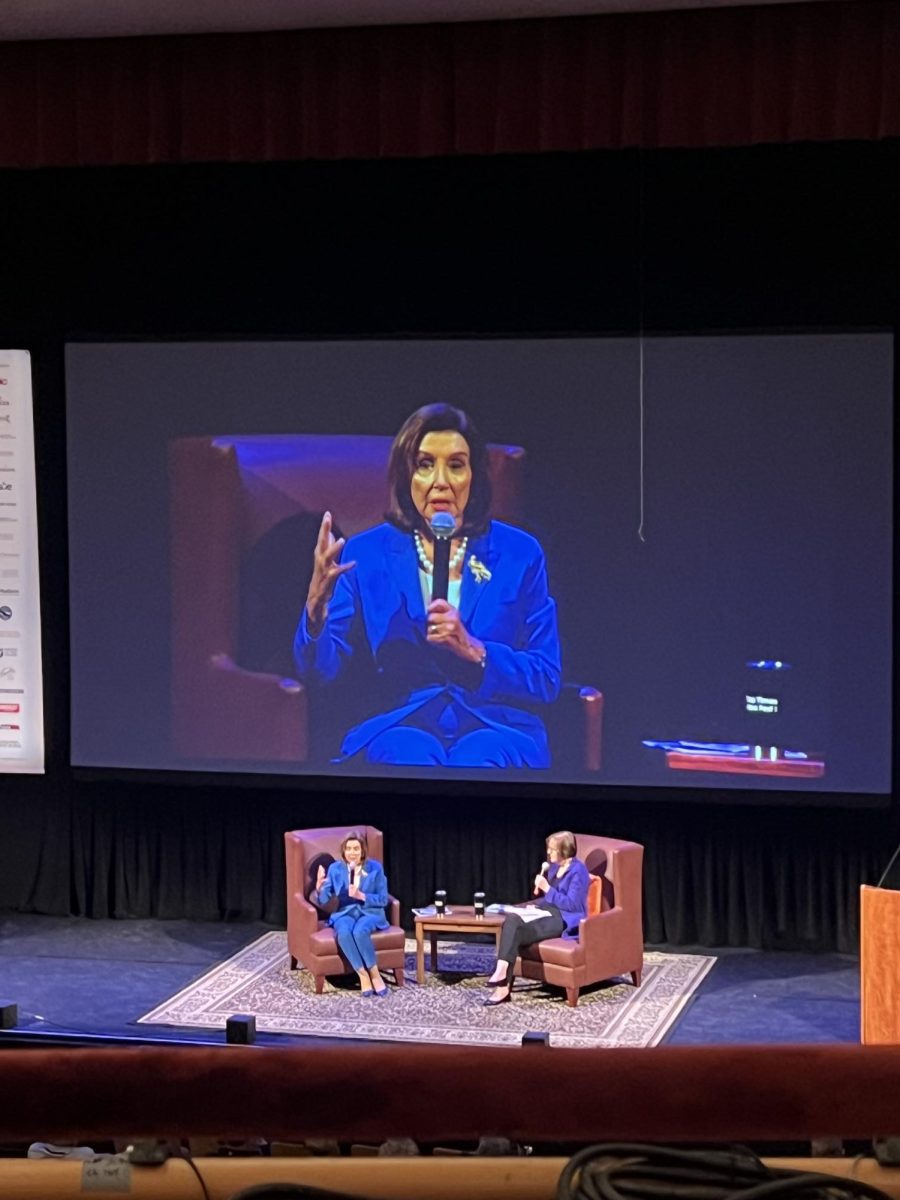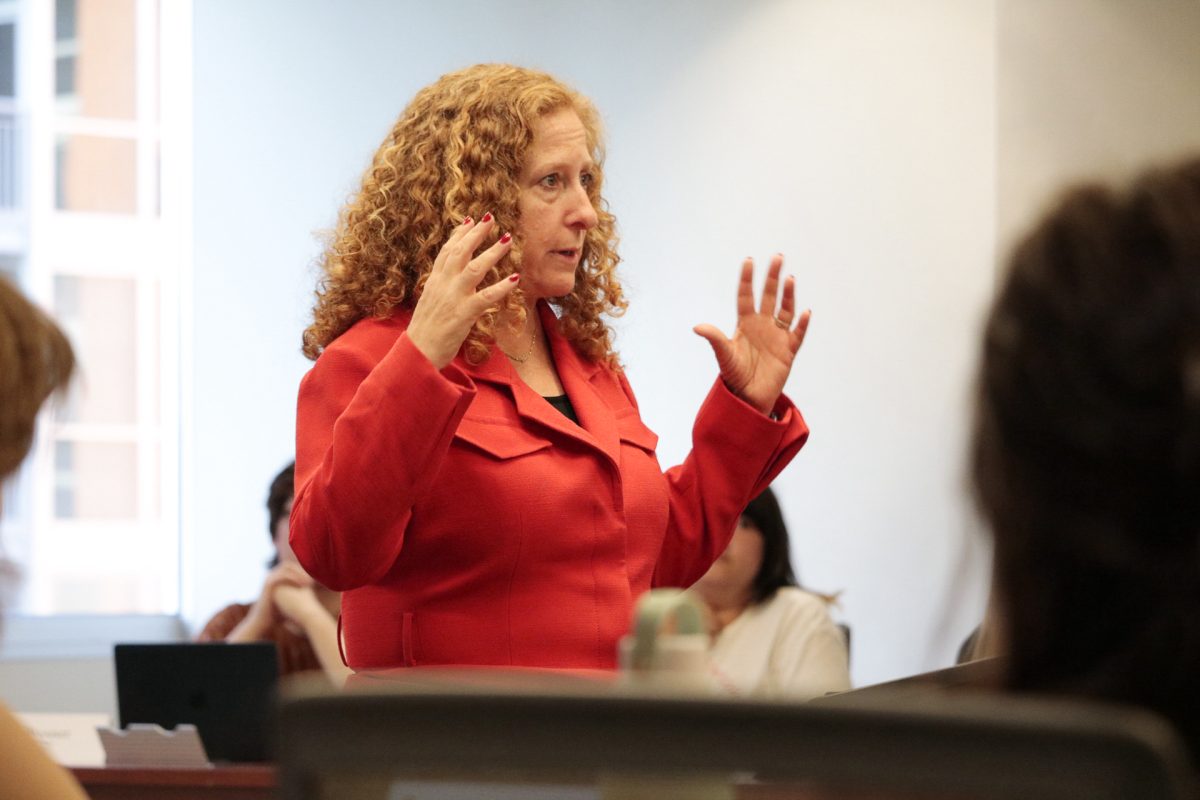When Collegians for a Constructive Tomorrow was denied a second chance at a Student Services Finance Committee eligibility hearing, they found themselves without a chance of receiving the nearly $130,000 budget they had come to rely on annually.
However, as a part of a growing trend on campus, the group turned to an alternate source of funding through the Associated Students of Madison to begin to cover some of their expenses.
With SSFC’s stricter standards leading to fewer student organizations being funded on an annual basis, more and more registered student organizations are turning to grants from the Finance Committee for the money still needed in their budgets.
SSFC decreased its funding from 22 groups in 2007 to 14 this year, and this contributed to a growth in the number of groups applying for finance grants. Finance saw 68 operations applications from student organizations for the 2006-07 year and more than 150 groups requesting grants this year, according to Chair Matt Beemsterboer.
Because of these grants, groups like CFACT are still able to earn funding amounting to thousands of dollars.
History by the numbers
Finance is responsible for ASM’s internal fiscal budget, of which the most recent is currently working its way through the approval process with an initial approval by Student Council amounting to $1.2 million. Part of this is allocated by Finance through four different grants: operations, travel, events and a recently added “open funds” grant available to RSOs.
According to Beemsterboer, the net grant budget of finance is approximately $500,000 for the 2009 fiscal year: $250,000 is available for event grants and $125,000 is available for both operations and travel grants. Open funds, delegated in a flexible number of grants equaling up to $200, make up approximately 10 percent of operations grants every year and are allocated on a first come, first served basis.
Compared to last year’s allocable funds, event grants went down from the $300,000 allocated in the 2008 fiscal year to the current $250,000. The extra funds were transferred into the travel and operations grants budget. Operations grants and travel grants increased to $125,000, and the overall budget increased $25,000.
Beemsterboer added the funding available to groups, despite the current economic recession, has not fluctuated much in the past few years and has actually increased. He said as chair, he can make recommendations for budget changes, but Student Council determines the final budget and whether increases are necessary.
Money, money… who’s got the money?
There is a distinct difference between SSFC and finance, as SSFC provides funding for organizations on a yearly basis and finance grants more as need arises.
“SSFC funding is like a stream that organizations can tap into for the entire school year,” Beemsterboer said. “ASM grants are a one-time thing for an event or traveling to somewhere, although the operations grant is along the same lines as an approved budget from SSFC.”
The ASM internal budget is funded by student segregated fees. According to SSFC Legal Counsel Kurt Gosselin, for approximately every $37,000 the total available grants are increased, student segregated fees increase by about $1 per student.
“Student Council and in a way SSFC control the budgets that ASM works with,” Beemsterboer said. “SSFC is the power of the Finance Committee per se, but the funding we use separate from SSFC is also a general segregated fees levy. Altogether, ASM and SSFC control a very large sum of money — millions of dollars.”
He added the general checks in place are more institutional. Every organization that receives funding has to be approved by Student Council. If an organization has an issue with their funding, they can appeal to Student Council or Student Judiciary.
“Also, any funds that aren’t used are rolled over at the end of every semester,” Beemsterboer said. “Our financial specialist keeps track of how much is allocated, and then at the end of the year, there is usually at least $5,000 to $10,000 that gets rolled back into the budget.”
Eligibility
In contrast to SSFC’s 19 criteria for their budget decisions, the main requirement for student organizations to request funding from finance, according to Beemsterboer, is they must be an RSO and follow the rules and policies of the specific grant for which they are applying. Timing for applications is slightly stricter, but generally the committee hears groups within two weeks.
“SSFC has stricter standards to receive eligibility for funds: direct services, accountability, following specific rules, policies, and definition in bylaws and standing laws,” Beemsterboer said. “[ASM] grants are available to any registered student organizations and are more tailorable to students needs.”
Student organizations that have been granted funds have a set of rules to follow. For example, operations grants only fund postage, graphics and web design, equipment rental, office supplies, dues to other organizations, subscriptions and advertisements, and promotions, according to the policies and procedures list.
The policies go on to say items such as salaries, stipends, wages, event oriented funding, grants, gifts, prizes and elections are not included, and all publicly distributed materials must have an ASM logo and disclaimer clearly printed on them.
The problem with grants not funding salaried positions can put groups who were denied funding from SSFC in a tight position, Gosselin said.
In the hearing process, Beemsterboer said finance looks over the list of items for which a group is requesting funding. After a question and answer period where the student organization has a chance to clarify how and where the funds will be used, the committee allocates funds based on what they deem the group will use responsibly.
For travel grants, students are expected to pay part of the cost of the trip on their own, so finance normally looks at how much the students would be left paying out of pocket or to fundraise.
“If five people are going to an event and the group is requesting $8,000 for it, we’re obviously not going to fund the entire event at $1,600 per person,” Beemsterboer said. “We have to look objectively and make sure the group has really taken the time to create a fiscally responsible budget. We look to see if they have checked different flight options, applied for other grants, looked for other venues.”
He said he felt finance’s less scrutinized approach to granting RSO’s funding is necessary for the system. He said it would be difficult to ask student organizations to request funding based on a strict set of criteria as it would make the process more difficult than it is worth for many RSOs just looking to fund travel or an event.
Ain’t no party like an All-Campus Party
Although finance does not work with budgets worth hundreds of thousands of dollars like SSFC, it is still able to decide on substantial amounts for smaller line items.
Two of the larger event grants approved by finance over the years have belonged to the All-Campus Party and Homecoming, according to ASM Rep. and former chair Tim Fung.
“There’s a pretty broad range (of funds granted). All-Campus Party was funded close to $40,000 when I was chair,” Fung said.
Gosselin said this past year the event was allocated more than $44,000.
Wisconsin Union Directorate also regularly receives large grants from finance due to their different committees.
Normally, they receive approximately six to seven event grants. For the 2008 fiscal year, approximately $15,000 was granted for events, while close to $5,000 was funded in travel. Just under $10,000 was granted for events and about $3,400 in travel for the 2007 fiscal year .
SSFC Chair Brandon Williams said the WUD committees are not given much from the Memorial Union budget, which is partially funded by segregated fees. This causes the committees to apply for grants from Finance to help alleviate cost concerns for events or travel.
Other student organizations only need and request small amounts for funding. Crystal Lee, UW senior and chair of College Republicans, said the group has an open fund through finance but generally relies on a donor base for funds.
“We send out a newsletter, information and event invites to alumni, along with suggested donations for events,” Lee said. “We are receiving an open fund. We just applied for it.”
She added communication with the committee was slightly confusing, but the process of filing the appropriate forms and eligibility was accessible and straightforward, resulting in a fund of $200 for the College Republicans.
Recent policy changes
Unlike SSFC, Finance has not had many recent or drastic policy changes. According to Fung, the most recent change was regarding deadlines for applications.
Fung said previously an application for an events grant was due four weeks before the scheduled event. Now, the deadline has been changed to six weeks in advance to encourage groups to plan further in advance.
“The only other significant policy change I can recall was in my first year on the committee,” Fung said. “Temporarily for one semester, all travel grants were capped at $500. Then that was discontinued. The committee felt that was an arbitrary amount. Every group was getting $500, but there just wasn’t much stock going into the justification.”
Beemsterboer said another recent change to policy was that formerly, General Student Services Fund-funded groups and groups getting any money from SSFC could apply for event grants, but not for travel. That was changed this semester to accommodate the growing need of student organizations looking for funding from both types of grants.
Policy violations and committee crack down
WUD Theater Committee recently had $9,000 of their funding revoked after the committee failed to place the ASM logo on advertisements the group sent out to university newspapers to publicize the World Music Festival that took place in September.
In an e-mail to the committee, Beemsterboer said, “I understand why you might feel that it is unreasonable for the entire event grant funding to be repealed, and I can understand your frustration. I, however, would like you to understand things from our perspective. In the eyes of the ASM Finance Committee it is rather unreasonable for an organization to be granted any exception for breaking a rule that is rather explicitly stated within our policies and procedures.”
Beemsterboer said this was not the first time a group has been denied funding for failing to follow simple finance policies.
“On WUD as a whole, I will say this: Policy violations are simply unacceptable for them. They have multiple committees who receive ASM funding regularly and as a result, their leadership should all be well aware of our requirements,” Beemsterboer said. “Their policy violations are so simple, and so easily avoided, but they are violations nonetheless.”
WUD Theater Committee Director Rose Gear said the committee feels the entire event grant being revoked was uncalled for. She said WUD Theater respects finance’s policies and procedures and know why they are set in place, but it was a grave punishment for a minor infringement.
She added the group appealed the decision, but Beemsterboer denied them.
Beemsterboer explained the appeal is just a request to the chair that can be accepted or denied. From there, finance is put in charge to make a decision about a re-hearing. For WUD Theater, the appeal process now would have to go through Student Judiciary, if they so decided.
Beemsterboer said finance is going to set a precedent this year for cracking down.
“Anthony Robbins is famous for saying, ‘If you do what you’ve always done, you’ll get what you’ve always gotten.’ Well, finance has been lax on punishment for violators in past years and, as such, these violators have gotten off easy,” Beemsterboer said. “Well, that’s unacceptable to some, myself included, and it needs to change,”













